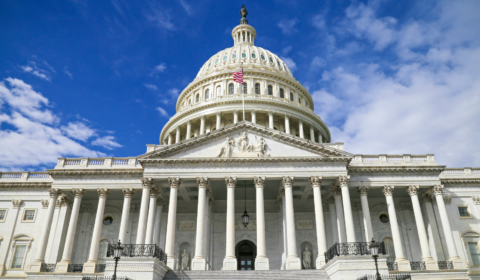Breaking down the data
Unsurprisingly, Gen Z felt most strongly about company climate action, with over half saying they would stop working for one that had no climate action plan.
We know that Gen Z is acutely aware of the ongoing climate crisis and is most motivated to take action that prevents it from worsening, despite having contributed the least to it.
Still, further data revealed that – even in a recession – 32 percent of all employees surveyed would not want their company to cut its sustainability programme to save money.
Sure, loads of businesses have already taken steps towards reducing their environmental impact. From easy solutions like swapping old packaging out for eco-friendly materials, to fitting skyscrapers and other office buildings with solar panels.
But one-fifth of UK employees admit to being unsatisfied with their employers’ current commitments to becoming more sustainable.
Michelle You, co-founder and CEO of Supercritical said, ‘Businesses can no longer get away with changing or scrapping their sustainability initiatives at the drop of a hat.’
She continued, ‘Employees are demanding more and employers are being held to account. Those that want to attract and retain top talent must start seeing climate action as a non-negotiable or risk being left behind.’
The future is green
Sustainable practices are slowly but surely becoming the standard. Being environmentally conscious is also something the vast majority feel morally obligated to.
At least 50 percent of all respondents said that a company’s strategy for reaching net zero would impact their decision to accept a job position. Meanwhile, 80 percent said they’d refuse to work for a company they knew was harming the environment.
Whether you’re privy to believing the data or a bit of a cynic about people’s willingness to follow through with their answers, it’s impossible to ignore how the climate crisis now influences a role in every part of daily life.
With 70 percent of office-based employees said would be proud to work for a climate-conscious company, it wouldn’t be bad to assume that companies lacking in plans for achieving net zero will struggle to hire younger generations.




















